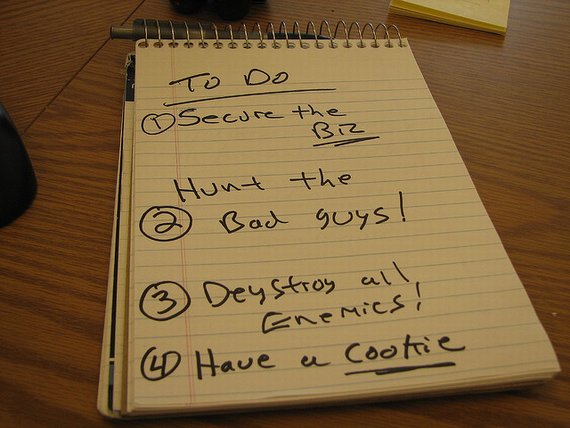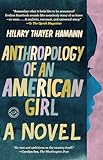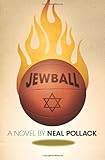
In a previous essay, I interviewed four self-published authors I admire, and I examined some of the benefits of that career path. Midway through writing the piece, I realized I’d have to continue the discussion in a second essay in order to fully explore my feelings (complicated) on the topic (multifaceted). You see, Reader, I still don’t plan on self-publishing my first novel, though I don’t deny the positive aspects of that choice.
Below I’ve outlined a few reasons behind my decision, informed by our contemporary moment. I can’t predict the future, though I’m sure I’ll remain comfortable with my opinions for at least another thirteen months. It’s in a list format, the pet genre of the blogosphere. How else was I to keep my head from imploding?
1. I Guess I’m Not a Hater
People love to talk about how traditional publishing is dying, but is that actually true? According to The New York Times, the industry has seen a 5.8% increase in net revenue since 2008. E-books are “another bright spot” in the industry, and the revenue of adult fiction grew by 8.8% in three years. (Take that, Twilight!)
Of course, the industry has troubles. The slim profit margins of books; the problems of bookstore returns; the quandary of Borders closing and Amazon forever selling books as a loss-leader; how to make people actually pay for content, and so on. Furthermore, the gamble of the large advance strikes me as ridiculous — and reckless, considering that editors and marketing teams have no real clue which books will be hits and which ones won’t. (Still, what writer is going to kick half-a-million out of bed?) And there’s the always-chilling question: With mounting pressure to turn a profit, how do editors justify publishing an amazing book that might not speak to a large audience? Talented authors — new and mid-list — are bound to get lost in this system.
And yet. And yet. I read good books by large publishing houses all the time, books that take my breath away, make me laugh and cry and wonder at the brilliance of humanity. I trust publishers. They don’t always get it right, but more often than not, they do. As I said in the piece that started me off on this whole investigation: “I want a reputable publishing house standing behind my book; I want them to tell you it’s good so that I don’t have to.”
2. I Write Literary Fiction
 Before you get your talons out, let me clarify: I don’t consider literary fiction superior to other kinds of fiction, just different; to me, it’s simply another genre, subject-wise and/or marketing-wise. Many of the writers who have found success in self-publishing are writers of straightforward genre fiction. Amanda Hocking writes young adult fantasy, dwarfs and all. Valerie Forster, who published traditionally before setting out on her own, writes legal thrillers. Romance, too, often does just fine without a publisher. Aside from Anthropology of An American Girl by Hilary Thayer Hamann, I can’t think of another literary novel that enjoyed critical praise and healthy sales when self-published. That’s not to say that it can’t — and shouldn’t — happen, it’s only to point out that it’s a tougher road for writers of certain sorts of stories. Readers like me aren’t seeking out self-published books. Why not? That’s for another essay. (Please, can someone else write that one?) Until the likes of Jeffrey Eugenides and Alice Munro begin publishing their work via CreateSpace, I don’t see the landscape for literary fiction changing anytime soon.
Before you get your talons out, let me clarify: I don’t consider literary fiction superior to other kinds of fiction, just different; to me, it’s simply another genre, subject-wise and/or marketing-wise. Many of the writers who have found success in self-publishing are writers of straightforward genre fiction. Amanda Hocking writes young adult fantasy, dwarfs and all. Valerie Forster, who published traditionally before setting out on her own, writes legal thrillers. Romance, too, often does just fine without a publisher. Aside from Anthropology of An American Girl by Hilary Thayer Hamann, I can’t think of another literary novel that enjoyed critical praise and healthy sales when self-published. That’s not to say that it can’t — and shouldn’t — happen, it’s only to point out that it’s a tougher road for writers of certain sorts of stories. Readers like me aren’t seeking out self-published books. Why not? That’s for another essay. (Please, can someone else write that one?) Until the likes of Jeffrey Eugenides and Alice Munro begin publishing their work via CreateSpace, I don’t see the landscape for literary fiction changing anytime soon.
3. I’d Prefer a Small Press to a Vanity Press
 The conversation about self-publishing too often ignores the role of independent publishing houses in this shifting reading landscape. Whether it be larger independents like Algonquin and Graywolf, or small gems like Featherproof and Two Dollar Radio, or university presses like Lookout Books, the imprint at the University of North Carolina, Wilmington, which recently published Edith Pearlman’s Binocular Vision (nominated for this year’s National Book Award), independent presses offer diversity to readers, and provide yet another professional option for authors. These presses are run and curated by well-read, talented people, and they provide readers with the same services that a large press provides: namely, a vote of confidence in a writer the public might have never heard of. Smaller presses, too, enjoy a specificity of brand and identity that too often eludes a larger house.
The conversation about self-publishing too often ignores the role of independent publishing houses in this shifting reading landscape. Whether it be larger independents like Algonquin and Graywolf, or small gems like Featherproof and Two Dollar Radio, or university presses like Lookout Books, the imprint at the University of North Carolina, Wilmington, which recently published Edith Pearlman’s Binocular Vision (nominated for this year’s National Book Award), independent presses offer diversity to readers, and provide yet another professional option for authors. These presses are run and curated by well-read, talented people, and they provide readers with the same services that a large press provides: namely, a vote of confidence in a writer the public might have never heard of. Smaller presses, too, enjoy a specificity of brand and identity that too often eludes a larger house.
In this terrific interview, publisher Fred Ramey of Unbridled Books puts it this way:
I believe that the iron grip that large publishers and their marketing partners have had on readers’ attention since the 1990s has slipped quite a bit with the arrival of online retailers and opinion-makers. Obviously patrons of online booksellers can see the breadth of reading options – “Others who bought this item also bought….” Patrons of independent bookstores know of those options, too, and depend on the recommendations of their booksellers. The few “designated” titles from the big house are still dominant, of course, even in independent stores. But if you are an author in one of those corporations whose book has not been “designated” your reality can become pretty stark.
Independent presses can offer a real chance to a talented writer who might not fit the formulas of the big house. Yes, I know that each conglomerate has a few imprints and a good many editors dedicated to the best of books — to maintaining the course of American letters. Those are the prestigious imprints that aren’t always required to pretend the sales of a prior book predict the performance of the next book. (I’m often astounded at how willing the industry is to act as though it believes that. We all know it isn’t true.) But independent presses are all dedicated to finding and presenting the best of books, dedicated to the books in and of themselves and to the promise of the authors.
A year ago, I published my novella If You’re Not Yet Like Me with a tiny press called Flatmancrooked, and I consider it the highlight of my career so far. Not only did I get to work with a sharp and talented editor, Deena Drewis, and have my book designed by the press’s risk-taking founder Elijah Jenkins, I also had so much fun participating in the press’s LAUNCH program, where the limited first-edition went on pre-order for just a week. My book sold out in three days, and getting that first paycheck was exhilarating. My tiny book got me on a panel at the Los Angeles Times Festival of Books, a few awesome readings, and it even found its way to two different editors at larger houses. It became my literary calling card. When readers received my book in the mail, it was signed and numbered by me. It also came with a condom.
Flatmancrooked, sadly, closed its doors earlier this year, but Drewis has continued the LAUNCH program with her new press, Nouvella. The success of Flatmancrooked showed me that small can mean flexible and daring in its editorial and marketing choices. Small presses try things that large, established houses are too huge, and possibly too chickenshit, to even consider. The fact that Flatmancrooked is now defunct showed me that a labor of love is still a labor (especially when its laborers have other full-time jobs to go to), and that instability is unavoidable in the small press (or the small, small, small press) game.
Some writers are forever wed to the small press landscape. Others, like Blake Butler, Amelia Gray, Benjamin Percy, and Emma Straub first published with smaller outfits and have since moved onto larger houses. Perhaps the small press world is becoming the real proving ground for literary writers.
4. Self-Publishing is Better for the Already-Published
Perhaps the smarter, and far more seductive, path is the one where the writer begins his career with a traditional publisher, and then, once he’s built a base of loyal readers, sets off on his own. The man who loves to talk smack about the publishing industry, J.A. Konrath, already had an audience from his traditionally-published books by the time he decided to take matters into his own hands. It’s much harder to create a readership out of nothing.
 I’m interested to see how Neal Pollack’s latest novel, Jewball, does as a self-published book. Short story writer Tod Goldberg is also trying this approach with his new mini-collection, Where You Lived, self-published as an e-book. I don’t need an intermediary to tell me about these writers because their previously published books speak for them.
I’m interested to see how Neal Pollack’s latest novel, Jewball, does as a self-published book. Short story writer Tod Goldberg is also trying this approach with his new mini-collection, Where You Lived, self-published as an e-book. I don’t need an intermediary to tell me about these writers because their previously published books speak for them.
5. I Value the Publishing Community
I decided to ask the most famous writer I know, Peter Straub, if he’s ever considered leaving the world of big publishing and putting out a book all by his lonesome. After all, he’s a bestselling author and editor of more than 25 books (18 novels alone!), and he’s a horror writer beloved by genre geeks and snobby literary types alike. A few of his fans probably sport tattoos of his bespectacled face on their pecs. (Or: Peter Straub tramp stamps! Yes!) In an email response, Straub acknowledged how quickly the publishing world and our reading habits are changing, and he said he just might experiment with self-publishing short fiction in the coming years. He told me:
True self-publication means writers upload content themselves, and plenty already do it. I’m not quite sure how you then publicize the work in question, or get it reviewed, but that I am unsure about these elements is part of the reason I seek always, at least for the present, to have my work published in book form by an old-style trade publisher. The trade publisher, which has contracted for the right to do so, then brings the book out in e-form and as an audiobook, so I am not ignoring that audience.
What he went on to say gave me a special kind of hope:
Most of the editors I have worked with over the past thirty-five years have made crucial contributions to the books entrusted to them, and the copy-editors have always, in every case, done exactly the same. They have enriched the books that came into their hands. Can you have good, thoughtful, creative editing and precise, accurate, immaculate copy-editing if you self-publish? And if you can’t, what is being said about the status or role of selflessness before the final form of the fiction as accepted by the audience, I mean the willingness of the author to submerge his ego to produce the novel that is truest to itself?
This — this! — I get. Even though my first novel was rejected by traditional publishers, one assistant editor’s notes on it — notes that were thorough, thoughtful, challenging, and compassionate — were enough to show me that these professionals are valuable to the process of book-making. I know you can hire experienced editors and copy-editors, but how is that role affected when the person paying is the writer himself? What if the hired editor told you not to publish? Would that even happen?
6. The E-Reading Conundrum; or, I don’t want to be Amazon’s Bitch
Many self-published authors have gone totally electronic, eschewing print versions of their work altogether. I can’t see myself taking that route, however, because I don’t own an e-reader, and I don’t have plans to buy one (not yet, anyway… I read a lot in the bath, etc., etc.). It seems odd that I wouldn’t be able to buy my own book — I mean, shouldn’t I be my own ideal reader? I also prefer to shop at independent bookstores, and in fact, I pay full price for my books all the time. The thought of Amazon being the only place to purchase my novel shivers my timbers. I don’t mind if someone else chooses to read my work electronically, just as I don’t mind if Amazon is one of the places to purchase my work; I’m simply wary of Amazon monopolizing the reading landscape. Self-publishing has certainly offered an alternative path for writers, but it’s naive to believe that a self-published author is “fighting the system” if that self-published book is produced and made available by a single monolithic corporation. In effect, they’ve rejected “The Big 6” for “The Big 1.”
7. Is it Best for Readers?
In September, when my brother-in-law learned that my book still hadn’t sold, he said, “Please don’t self-publish!” He was actually wincing. If I did self-publish, he said, he’d buy it because we were family, but otherwise, he’d happily ignore my novel in search of something he’d read about on The Millions, or heard about on NPR, or had a friend recommend. There are simply too many books out there as it is.
Our conversation reminded me of Laura Miller’s humorous and perspicacious essay, “When Anyone Can be a Published Author,” in which she reminds us that the people who celebrate self-publishing often overlook what it means for book buyers and readers. She writes:
Readers themselves rarely complain that there isn’t enough of a selection on Amazon or in their local superstore; they’re more likely to ask for help in narrowing down their choices. So for anyone who has, however briefly, played that reviled gatekeeper role, a darker question arises: What happens once the self-publishing revolution really gets going, when all of those previously rejected manuscripts hit the marketplace, en masse, in print and e-book form, swelling the ranks of 99-cent Kindle and iBook offerings by the millions? Is the public prepared to meet the slush pile?
As a member of the reading public, I am not prepared, or willing, to wade through all that unfiltered literature. As a writer, I must put my head back to the grindstone and write a book that more than a handful of readers can fall in love with.
8. I’m Busy. Writing.
Today I wrote two pages of my new novel while my mother took my five-month-old son to the mall. I get twelve hours of childcare a week, and six of those are dedicated to preparing for my classes and running a private writing school. The other six hours I devote to my new novel. The old one, the one that traditional editors didn’t go nuts for, is in the drawer. Some might say I’ve given up; I say, I’m just getting warmed up. I’m still writing, aren’t I? My career isn’t one book, but many. And like every other writer out there, I decide what road I want to travel.
Image credit: purplesmog/Flickr








